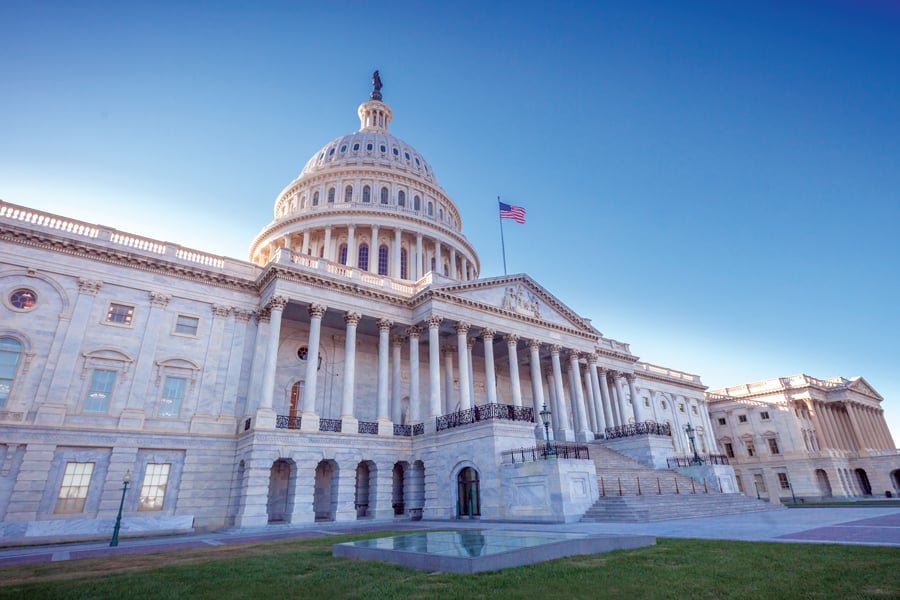Bipartisan Senate legislation would provide favorable tax treatment to encourage employers to help their workers pay off student loan debt.
Under the bill, the
Employer Participation in Repayment Act, companies could contribute up to $5,250 per year tax-free to their employees to reduce student loan balances. Currently, federal law only allows firms to help finance educational costs for workers who are taking undergraduate or graduate courses.
The
Senate bill, introduced Wednesday, would target people who have already incurred debt. Their burdens are growing sharply. A
recent study shows student debt totaled $1.5 trillion last year.
"Today, too many Americans are saddled with tough-to-manage student loan debt, with no end in sight," Sen. Mark Warner, D-Va., co-author of the bill, said in a statement. The other author is Sen. John Thune, R-S.D.
A
House companion bill was introduced by Reps. Scott Peters, D-Calif., and Rodney Davis, R-Ill., and already has
100 bipartisan co-sponsors.
Additional enthusiasm around this issue on Capitol Hill is evident in
a bill Rep. Julia Brownley, D-Calif., introduced last month that would encourage employers to offer student-loan assistance by giving them a 10% tax deduction for repayments up to $6,000 annually.
Another bill designed to help students get a better start on their financial lives was re-introduced Tuesday by Sens. Elizabeth Warren, D-Mass., Mike Lee, R-Utah, Ron Wyden, D-Ore., and Tim Scott, R-S.C. It would allow graduate students to deposit funds from their stipends or fellowships
into individual retirement accounts.
The student-debt legislation would offer a win both for employers, who are facing an increasing challenge in attracting talent, and for workers struggling to pay off educational loans, according to Mark Hamrick, senior economic analyst and Washington bureau chief at Bankrate.com.
"On the face of it, the proposed legislation would help address two major challenges for business, individuals and the nation as a whole: burgeoning student loan debt and a tight job market," Mr. Hamrick said in a statement.
The tax-free debt contributions would give employers a new incentive to add to retirement and health-care benefits, said Ken Mahoney, chief executive of Mahoney Asset Management.
"This makes a lot of sense because it helps both sides," Mr. Mahoney said. "I haven't seen anything like this. This could be a game-changer."
When workers make minimum payments on their loans, they don't reduce the principal, according to Mr. Mahoney. Over a few years, the extra $5,250 from their employers will be meaningful.
"Now, you're making a real dent into your college debt," he said.
Easing the student debt burden could energize other parts of the economy.
"With nearly $1.5 trillion in student debt in this country, there's ample evidence there is related collateral economic damage in the sense that other financial options are diminished when one is holding student load debt ... [including] home ownership, other significant purchases, and saving for retirement and emergencies," Mr. Hamrick said.
That may be why, in a deeply divided Washington, tackling student debt has garnered bipartisan and bicameral support.
"I hope this gets passed," Mr. Mahoney said. "This college debt is really a huge problem."







